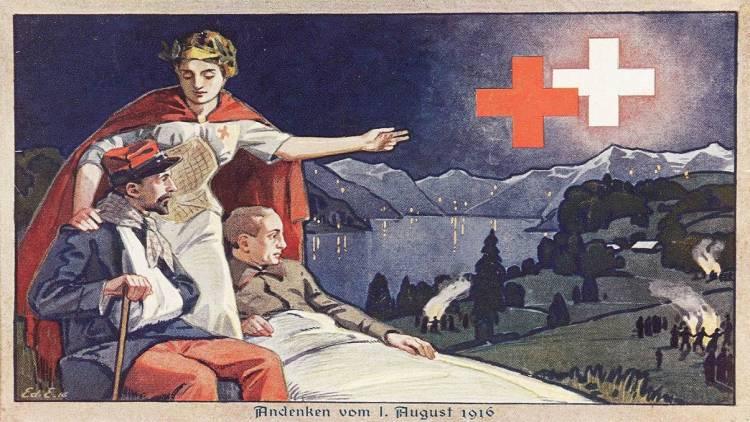Red Cross develops war video games – with rules
The idea that the International Committee of the Red Cross (ICRC) is developing military shooter video games may be a surprise to many. But the aim is not to kill everything that moves; it’s a training tool to teach people that there are rules, even in wartime.
In war video games, the aim is often to shoot and kill as many enemies as possible. Unlike real conflict situations, children or other civilians are often not present in the games. And the issue of what can be shot at is seldom an issue.
The Geneva-based ICRCExternal link wanted to change this idea by developing a video game in which combatants wage war while respecting the rules of international humanitarian law.
This means the player must distinguish between enemy and civilian combatants, and must provide assistance to the wounded. Anyone who kills prisoners of war or shoots civilians is penalised.
“I can’t just shoot everything that moves. I have to watch my target,” explains Christian Rouffaer, head of the ICRC’s virtual reality laboratory in Bangkok. “A real soldier can’t do what he wants.”
This is something that many gamers are unfamiliar with.
The ICRC has tried to make its video game as realistic as possible. The gamer must take time to load weapons and visibility is sometimes poor.
Yet Rouffaer acknowledges that in creating such a game the organisation is “walking a thin line” between glorifying war and building a game that is impossible to play as it is too close to reality.
The ICRC’s lab is also working on virtual reality simulations to help train staff who work in war zones. Simulations include treating the wounded amid the confusion of battle.
The ICRC, which is on the ground in over 80 countries, provides humanitarian assistance to victims of conflict and violence worldwide. It employs around 16,800 people, including around 1,000 at its Geneva headquarters.
The Swiss-run organisation is part of the International Red Cross and Red Crescent Movement, which has an estimated 12 million volunteers worldwide.
(Translated from French: Simon Bradley)











You can find an overview of ongoing debates with our journalists here . Please join us!
If you want to start a conversation about a topic raised in this article or want to report factual errors, email us at english@swissinfo.ch.